
Most people start the day with a cup of coffee or tea: the average person in Germany drinks around 169 liters of coffee and around 28 liters of black tea every year. Neither of these is considered healthy. But which is the healthier choice – black tea or coffee?
Many people look forward to a nice hot coffee when they get up, others prefer black tea. Because it is often said that black tea is healthier than coffee – is that true?
Coffee vs. black tea: different levels of caffeine
Both hot drinks make us awake and alert thanks to the caffeine they contain: it helps to increase concentration and promotes physical and mental performance. The awakening active ingredient contained in tea is often referred to as teain. We now know that the two active ingredients are identical – but there are differences in their effect on the body: While coffee contains around twice as much caffeine, which has a quick and strong effect, black tea has a weaker one at around 20 milligrams per 100 milliliters but long-lasting effect.
The following applies to both coffee and tea: the caffeine content can vary greatly. It depends on the respective variety, processing and preparation. Up to 400 milligrams (mg) throughout the day are considered harmless in healthy people. Or if you want to know more individually: For adults, 3 mg of caffeine per kilogram of body weight as a single dose and 5.7 mg spread over the day are considered unproblematic.
👉 For coffee this means: According to the Federal Center for Nutrition, four to five cups of filter coffee a day are considered safe for healthy adults. You can safely drink black tea up to seven cups a day.
Important: The effect of caffeine varies from person to person and the body gets used to the caffeine when consumed regularly. Those who rarely consume caffeine or consume too much caffeine can suffer from nervousness, rapid heartbeat and insomnia.
Coffee: Healthier than expected
Coffee doesn’t necessarily have a reputation for being healthy. But some studies have now shown that people who regularly drink coffee every day have a lower risk of a whole range of diseases. These include cardiovascular diseases, type 2 diabetes, some types of cancer and gout. Liver diseases such as liver cirrhosis were also less common among coffee drinkers. A positive influence was also demonstrated on diseases such as Parkinson’s, depression and Alzheimer’s. The health-promoting effects of coffee are primarily attributed to two substances: caffeine and antioxidants.
By the way: Do you already know these regional coffee alternatives?
Health-promoting secondary plant substances in black tea
In addition to caffeine, black tea also contains polyphenols. These phytochemicals may be the reason why the body absorbs caffeine more slowly. They are also said to protect against cardiovascular diseases, have an anti-inflammatory effect and prevent some types of cancer.
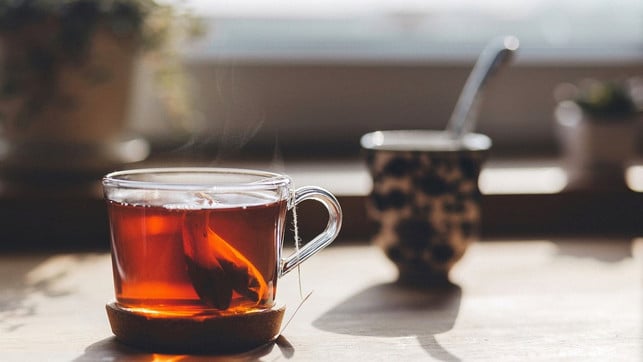
During the fermentation of green tea into black tea, other secondary plant substances are created: theaflavins, which have an antibacterial effect. Compared to green tea, black tea contains fewer tannins. Nevertheless, it retains its health-promoting effect: the tannins – also called tannins – can help lower blood pressure and cholesterol levels and also have an antibacterial effect.
Coffee and black tea: when you should avoid it
The caffeine contained in coffee and tea promotes the excretion of calcium and thus bone loss. That’s why you shouldn’t drink too much coffee or black tea if you suffer from osteoporosis. The same applies to people who regularly take cortisone. And people with high blood lipid levels and people with a sensitive stomach should also be careful, especially with coffee.
By the way: According to the German Society for Nutrition, a caffeine intake of around 200 mg spread throughout the day is harmless for the child for pregnant and breastfeeding women. That’s roughly equivalent to two cups of filter coffee.
Pesticides and pollutants in coffee and tea
Despite their positive ingredients and effects, both coffee and black tea have their downsides: Öko-Test tested coffees from various manufacturers in 2021 and black teas in 2023 – harmful substances were found in both tests.
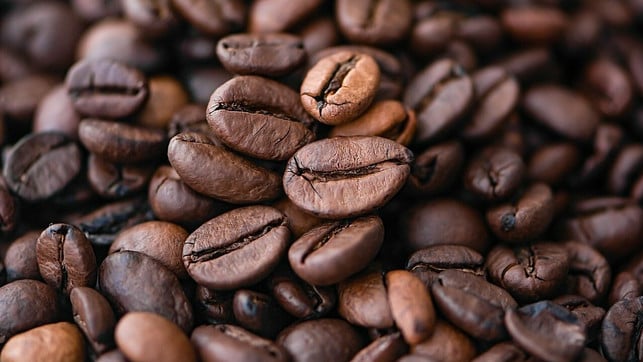
In all coffees tested, Öko-Test found the questionable liquid (methyl)furan, which, according to the European Food Safety Authority (EFSA), can cause long-term damage to the liver, as well as the potentially carcinogenic acrylamide. However, Stiftung Warentest 2024 found hardly any questionable residues.
Öko-Test also examined 24 black teas for pesticides: a total of 12 different plant protection products were detected. The pesticide glyphosate has been found in every conventional tea. In both studies, the organic versions performed better than the conventional coffees and teas.
You can find recommended brands for coffee with organic and fair trade seals here:
Leaderboard: Organic coffee & fair trade coffee
-
 1st placeGEPA coffee
1st placeGEPA coffee
4.8
120
DetailGepa Shop**
 2nd placeMount Hagen Coffee
2nd placeMount Hagen Coffee
4.8
53
DetailMount Hagen**
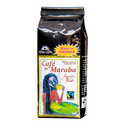 3rd placeCoffee cooperative Café de Maraba
3rd placeCoffee cooperative Café de Maraba
4.9
26
Detail Coffee Cooperative (Medium Roast)**
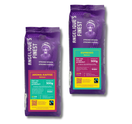 4th placeAngelique’s Finest Strong Women coffee cooperative. Strong coffee.
4th placeAngelique’s Finest Strong Women coffee cooperative. Strong coffee.
5.0
15
Detail Coffee Cooperative (Aroma Coffee)**
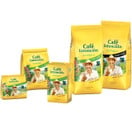 5th placeJJ Darboven Café Intención
5th placeJJ Darboven Café Intención
4.4
66
DetailAmazon**
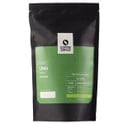 6th placeCoffee Circle Coffee
6th placeCoffee Circle Coffee
4.8
16
DetailCoffee Circle**
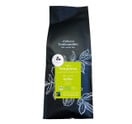 7th placeLaufenmühle coffee roastery
7th placeLaufenmühle coffee roastery
5.0
7
detail
 8th placeDennree Sidamo roasted coffee
8th placeDennree Sidamo roasted coffee
4.9
8
DetailAmazon**
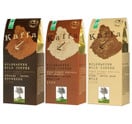 9th placeKaffa wild coffee
9th placeKaffa wild coffee
4.9
7
DetailAmazon**
 10th placeSonnentor Viennese seduction
10th placeSonnentor Viennese seduction
4.9
7
DetailSonnentor**
 11th placeAlnatura coffee
11th placeAlnatura coffee
4.3
13
Detailbitiba**
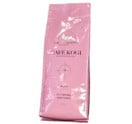 12th placeJungle coffee Cafe Kogi
12th placeJungle coffee Cafe Kogi
4.6
9
detail
 13th placeRapunzel Hero Coffee & Grain Coffee
13th placeRapunzel Hero Coffee & Grain Coffee
4.8
6
detail
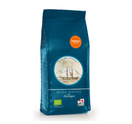 14th placeCafe Chavalo
14th placeCafe Chavalo
5.0
5
detail
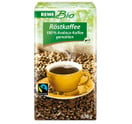 15th placeRewe organic roasted coffee
15th placeRewe organic roasted coffee
3.6
25
DetailRewe**
Black tea and coffee: The dose makes the poison
Both coffee and tea have many health benefits. If you are healthy, you can safely drink the drink of your choice – in moderation. However, the following applies to both hot drinks: the quantity makes the poison. Too much caffeine can make you restless and cause your heart to race. In order to absorb as few pollutants and pesticides as possible, you should definitely choose organic coffee and organic black tea. It’s best to pay attention to fairly traded products, so you can also do your part to improve working conditions in the cultivation of coffee and black tea.
Read more on Techzle\.com:
- Decaffeinated coffee: how healthy is it really?
- 6 tips for coffee grounds: Far too valuable to throw away
- Is spelled really healthier than wheat?
** marked with ** or orange underlined Links to sources of supply are partly partner links: If you buy here, you are actively supporting Techzle\.com, because we then receive a small part of the sales proceeds. More info.
Recent Articles
Related Stories